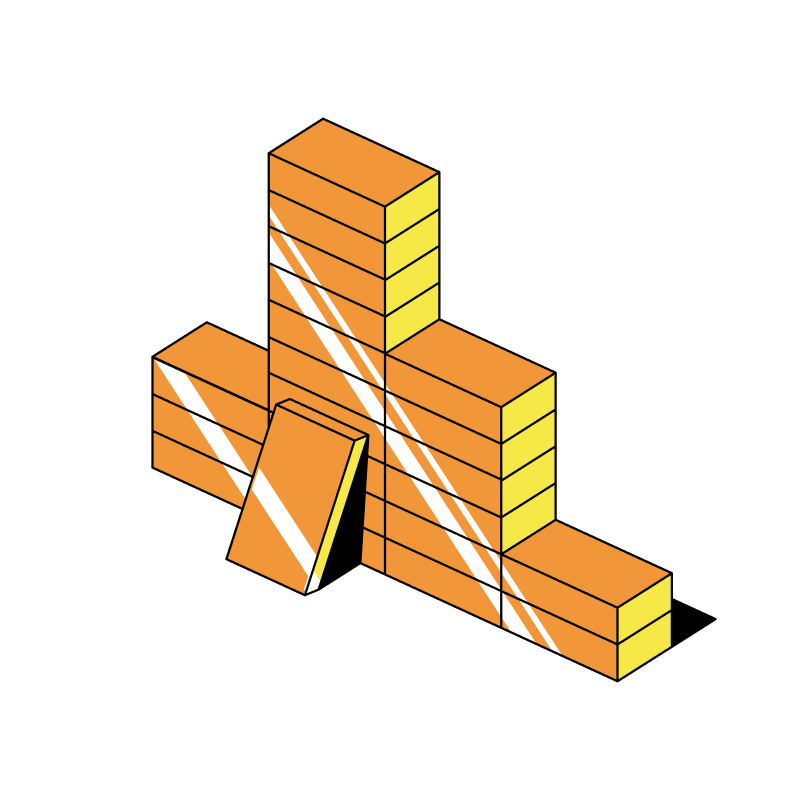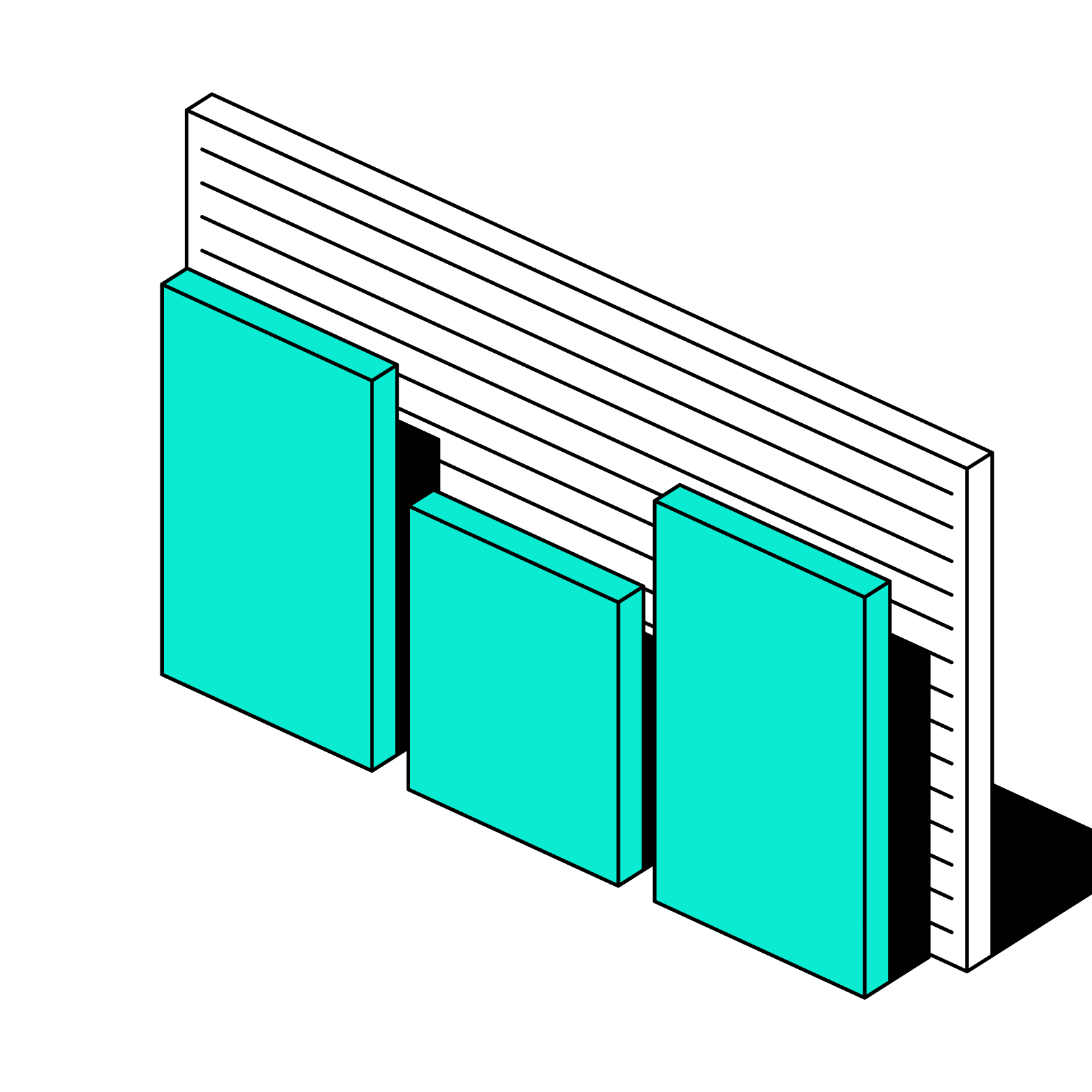Join the Kiwis who are hatching their tomorrow and have invested more than $2 billion with Hatch.
‘What is an EFT?’
‘An E-F-T? Don’t you mean ‘What is an ETF’?’
It’s a rite of passage to stumble over the jargon when starting out in the world of investing. ETF, meaning exchange traded fund, is one of the first terms many investors learn. We’ll explain what ETF means, the pros and cons of investing in ETFs, and look at the difference between stocks vs ETFs, and ETFs vs index funds.
What is an ETF?
Think of an exchange traded fund, or an ETF, as a shipping container full of investments, such as shares and bonds. If you invest in an ETF, you buy a share of the whole container and own a tiny slice of every investment contained within it.
ETFs mean that investors can invest in a group of companies, or an industry grouping of companies, in a single purchase. As the name suggests - exchange traded fund - when people buy an ETF, they’re investing money in a fund.
Back in the early 1990s, while Whitney Houston was topping charts with ‘I Will Always Love You’, State Street launched the very first US ETF, the SPDR S&P 500 (SPY). It was the first ETF that aimed to give individual investors more broad and efficient access to the capital markets. Twenty years on, both 90s legends have reached cult status, with Rolling Stone naming Whitney the second-greatest singer of all time and ETFs, now numbering around 8,700 worldwide.
How do ETFs work?
Exchange traded funds are created by a fund provider. Some well-known fund providers in the US include BlackRock, Vanguard, State Street, Invesco and Charles Schwab. The fund provider carefully selects different types of assets that may include stocks, bonds, currencies and commodities, then packages these as an ETF. These ETFs can be classified under categories broken down into asset class, sector, industry, region, country, bond, commodity and more.
The fund providers make these ETFs available to trade on the share markets, just like shares in single companies. Investors can buy and sell shares in an ETF on an exchange, much the same as buying and selling shares in a single company.
The pros and cons of investing in exchange traded funds
Investing in ETFs, like any investment, comes with pros and cons. Weigh up the risks and benefits so that you can decide if ETFs are the right investment for you.
ETFs can offer diversification
Rather than researching and hand-picking several individual companies to invest in, ETFs enable you to spread your money over tens, or hundreds of investments in a single transaction, which is called diversification.
Diversification simply means owning a variety of different investments. Think of it like this: If you invested $10,000 solely in Banana shares, you're relying on the Banana share price to increase. If instead, you spread that $10,000 over 20 different companies, your Banana shares now only account for 5% of your investments. If the Banana share price drops, 95% of your investments won't be as negatively affected had you gone totally (all-in on) Bananas.
Read more about diversifying your investment portfolio
Industry and thematic ETFs
ETFs are categorised under a sector, such as technology, healthcare, utilities or energy, which are ranked by asset under management (AUM). These can be further categorised within an industry, such as semiconductors, media, aerospace and defence, and clean energy.
When you’ve done your research on a mix of companies in an industry, you may select an industry themed ETF versus choosing a single stock. It’s worth being aware, however, that having only industry-focused thematic ETFs means your money isn’t spread across a wide range of companies and industries. So when markets are volatile, having less diversity may mean you’re exposed to higher risk. Always endeavour to look carefully at all the holdings contained in an ETF you’re researching, and the weighting of each (what percentage of the pie they account for), before you make any investment.
What are the fees associated with ETFs?
One investment metric to look at when choosing an exchange traded fund is the expense ratio. This tells you how much of the fund’s assets are used for expenses such as the ETF’s admin and operating costs. Knowing what fees you’ll pay to invest in an ETF can help you to decide if it fits with your financial goals. Keep in mind that there can be other costs involved in investing in ETFs too. Some could pass on commission fees from brokers while others have zero commission; it always pays to check.
ETFs vs stocks
The fundamental difference between the two goes beyond one being an initialism and the other lending itself to cooking puns. Exchange traded funds offer shares in multiple companies within a packaged container, whereas stocks represent ownership of shares in individual companies. Each has different properties and can respond differently to market fluctuations.
Read more about ETF vs stocks: What’s the difference?
ETFs vs index funds
Exchange traded funds and index funds have a lot in common; they both offer diversification, have a relatively low cost to invest, and are better suited to those looking for a long-term investment.
But there are a couple of key differences between the two:
- In many cases, the minimum amount needed to invest in an ETF is less than what you need to invest in an index fund, meaning ETFs are more accessible to everyday investors. This is especially true if your investment platform allows you to buy fractional shares in ETFs (Hatch does!).
- Exchange traded funds can be bought and sold on an exchange (the clue is in the name), whereas index funds must be bought directly from a fund manager.
There are other differences relating to tax, fees and liquidity so if you want to get deeper into the details, jump into Investopedia’s overview of ETFs vs index funds.
Where to buy ETFs in NZ
Just like company shares, exchange traded funds are bought and sold on a stock exchange. To buy ETFs in New Zealand you need a brokerage (share trading) account. Hatch offers people in New Zealand access to more than 1,900 US based ETFs, which can be bought and sold using a Hatch account.
Before you decide on which ETF to buy, it pays to understand the costs associated with buying them. Things to consider when looking at the cost to buy an ETF include expense ratios, brokerage fees, and whether or not you’ll need to exchange money from NZD to another currency (if you’re buying an ETF that isn’t listed on the New Zealand Stock Exchange NZX).
Learning what ETF means is one of the basics when you’re a beginner investor. Understanding the pros and cons of exchange traded funds will help you to decide if they’re the right investment for you. When you’re researching what to invest in, remember to look at multiple sources of information to help form your opinion.
We’re not financial advisors and Hatch news is for your information only. However dazzling our writing, none of it is a recommendation to invest in any of the companies or funds mentioned. If you want support before making any investment decisions, consider seeking financial advice from a licensed provider. We’ve done our best to ensure all information is current when we pushed ‘publish’ on this article. And of course, with investing, your money isn’t guaranteed to grow and there’s always a risk you might lose money.




















.png)